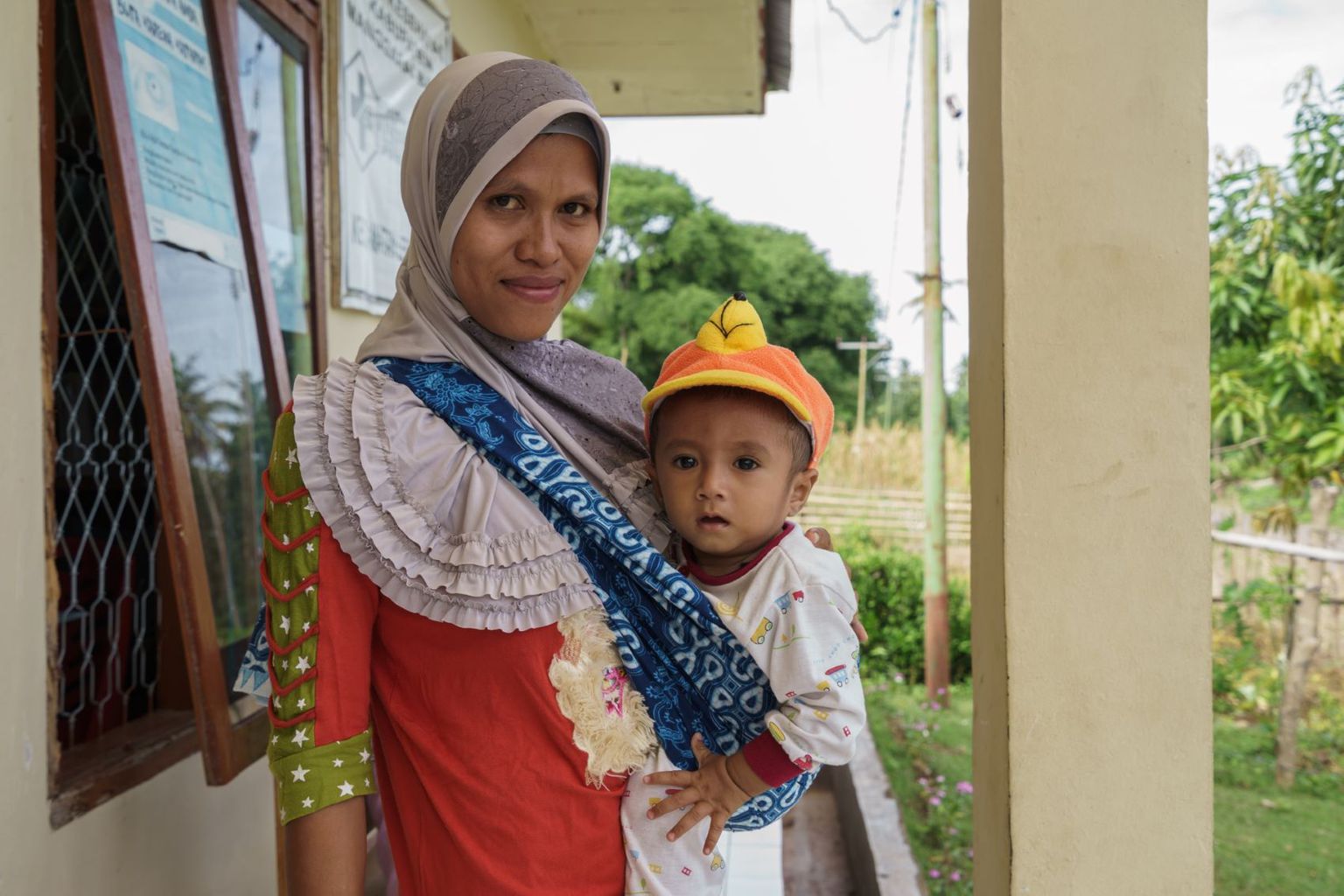All News
Nutrition International and partners leverage food fortification to fight micronutrient deficiencies in the Philippines
February 5, 2024
Sustaining fortification of staple foods critical to Indonesia’s COVID-19 response
In Indonesia, wheat flour fortification has come a long way, but the COVID-19 pandemic threatens to set back the progress that has been made − at a time when ensuring the health of the population is critical.
Posted on July 3, 2020

A country’s health system is built on the immune systems of its people. Food fortification is a low-cost, scalable intervention that can ensure the majority of the population is provided with the essential micronutrients necessary to build strong immune systems. In Indonesia, wheat flour fortification has come a long way, but the COVID-19 pandemic threatens to set back the progress that has been made − at a time when ensuring the health of the population is critical.
In 2002, the Government of Indonesia mandated that millers must fortify wheat flour with five micronutrients: vitamin B1, vitamin B2, zinc, folic acid and iron. However, the government’s guidelines did not align with the World Health Organization’s (WHO) guidelines on wheat flour fortification, which recommend which iron fortificant to use based on consumption. Indonesia’s National Standard for Fortification (SNI 2009) did not specify the type of iron fortificant, leading most millers to use electrolytic iron, the least expensive compound and the least bioavailable, and not recommended by the WHO at this consumption level.
Nutrition International and partners advocated with the Government to align its SNI with the WHO guidelines. In 2017, the Ministry of Health, with technical support from Nutrition International, undertook a study to assess the effectiveness of different fortificants. In 2018, the results of the study led the Ministries of Health and Industry to revise the SNI to require the use of ferrous fumarate, ferrous sulphate or NaFeEDTA, the fortificants recommended by the WHO. Yet the government’s recommended quantity is still not in line with the WHO’s guidelines and the legislation mandating adherence to the revised SNI has yet to be ratified.
The COVID-19 crisis has presented further barriers to wheat flour fortification in Indonesia. In March 2020, the Government of Indonesia issued a letter relaxing the mandatory fortification of wheat flour, citing challenges related to the import of premix. Most of the premix used in Indonesia, for both flour and oil fortification, comes from Malaysia and India, where borders are closed due to the pandemic.
Given the rates of malnutrition in Indonesia, suspending mandatory fortification puts the country’s population at risk. The prevalence of anaemia among women is 28.8%,1 and among pregnant women, 48.9%.2 Good nutrition is the foundation of a strong immune system and, given the pandemic conditions, it is even more important to ensure that good nutrition is available to all – especially women and children. Food fortification is a critical tool to deliver vital micronutrients.
Nutrition International has been working closely with millers to determine the quantity of premix stock available to continue fortifying wheat flour. Five large millers, who produce almost 71% of the wheat flour on the market, have enough premix stock available to adequately fortify wheat flour until the end of this year. Therefore, Nutrition international is requesting the Government of Indonesia reinstate the mandatory fortification of flour to support the delivery of essential micronutrients to the population at this time of crisis.
This period can be an opportunity to ensure the millers shift and adhere to the revised SNI. Nutrition International is recommending two priority actions to support the continuation of wheat flour fortification during the COVID-19 crisis:
Mandatory fortification, especially during a pandemic, will help to maintain the nutritional status of the people of Indonesia and prevent exacerbation of malnutrition rates in the country. COVID-19 has starkly revealed the vulnerabilities and inequities of our world, and the urgent need for improved nutrition has become even more apparent. By getting the right nutrition to those who need it most, we will weather this current crisis and emerge stronger on the other side.
About the authors
Aarati Pillai is the Regional Program Officer for Food Fortification, Asia with a background in nutrition and has been working in this sector since 7 years.
Rozy A. Jafar is the Program Officer for Food Fortification, Indonesia and has worked with Nutrition International for the past 10 years.
Suvabrata Dey is the Regional Food Fortification Manager, Asia with a background in social work and has been in the development sector for more than a decade.
Manpreet Chadha is the Senior Technical Advisor, Food Fortification and provides technical assistance and quality assurance for our programs that involve food fortification.
References
1 https://apps.who.int/gho/data/view.main.GSWCAH28v
2 Basic Health Research Data 2018